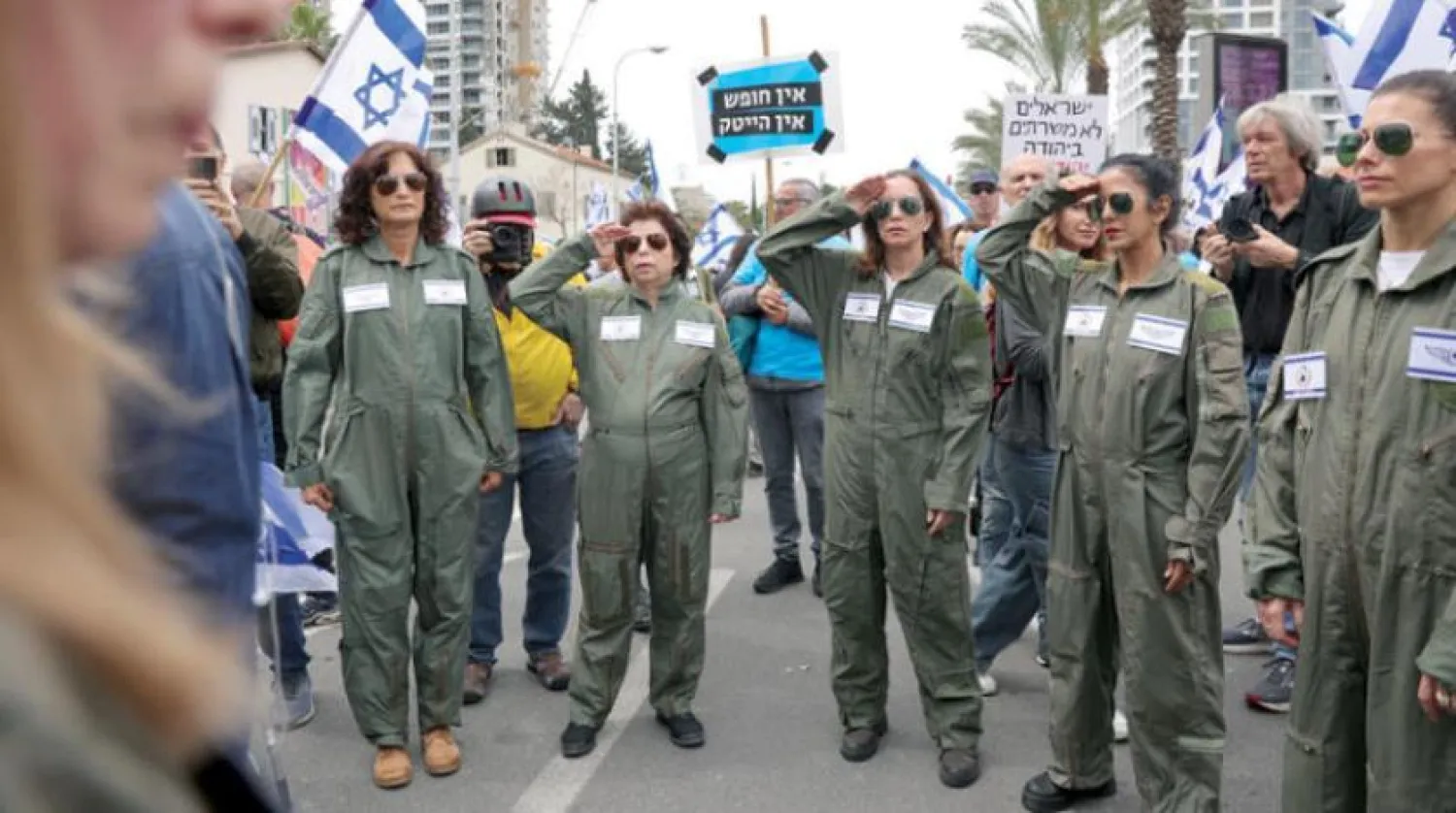Israel's hard-right government and opposition parties were set for a second day of talks Wednesday on controversial judiciary reforms that sparked a general strike and mass protests in the country's most severe domestic crisis in years.
Scepticism remained high over the negotiations on the judicial overhaul, which would curtail the authority of the Supreme Court and give politicians greater powers over the selection of judges.
US President Joe Biden also urged Netanyahu to negotiate in good faith and warned against simply ploughing ahead with the reforms.
A first day of talks between the government and the two main centrist opposition parties -- Yesh Atid and the National Unity Party -- was hosted by President Isaac Herzog Tuesday, according to The Associated Press.
"After about an hour and a half, the meeting, which took place in a positive spirit, came to an end," the president's office said.
"Tomorrow (Wednesday), President Isaac Herzog will continue the series of meetings," it added.
After three months of tensions that split the nation, Prime Minister Benjamin Netanyahu bowed to pressure in the face of a nationwide walkout Monday.
The strike hit airports, hospitals and more, while tens of thousands of opponents of the reforms rallied outside parliament in Jerusalem.
"Out of a will to prevent a rupture among our people, I have decided to pause the second and third readings of the bill" to allow time for dialogue, the prime minister said in a broadcast.
The decision to halt the legislative process marked a dramatic U-turn for the premier, who just a day earlier announced he was sacking his defence minister who had called for the very same step.
The move was greeted with suspicion in Israel, with the president of the Israel Democracy Institute think-tank remarking that it did not amount to a peace deal.
"Rather, it's a ceasefire perhaps for regrouping, reorganising, reorienting and then charging -- potentially -- charging ahead," Yohanan Plesner told journalists.
Opposition leader Yair Lapid reacted warily, saying on Monday that he wanted to be sure "there is no ruse or bluff".
A joint statement Tuesday from Lapid's Yesh Atid and the National Unity Party of Benny Gantz, a former defense minister, said talks would stop immediately "if the law is put on the Knesset's (parliament's) agenda".
The US president warned that Israel "cannot continue down this road" of deepening division.
"Hopefully the prime minister will... try to work out some genuine compromise, but that remains to be seen," Biden told reporters during a visit to North Carolina.
In a statement, Netanyahu said he appreciated Biden's "longstanding commitment to Israel".
But, he added: "Israel is a sovereign country which makes its decisions by the will of its people and not based on pressures from abroad, including from the best of friends."
In an earlier statement, Netanyahu had said that the goal of the talks "is to reach an agreement".









